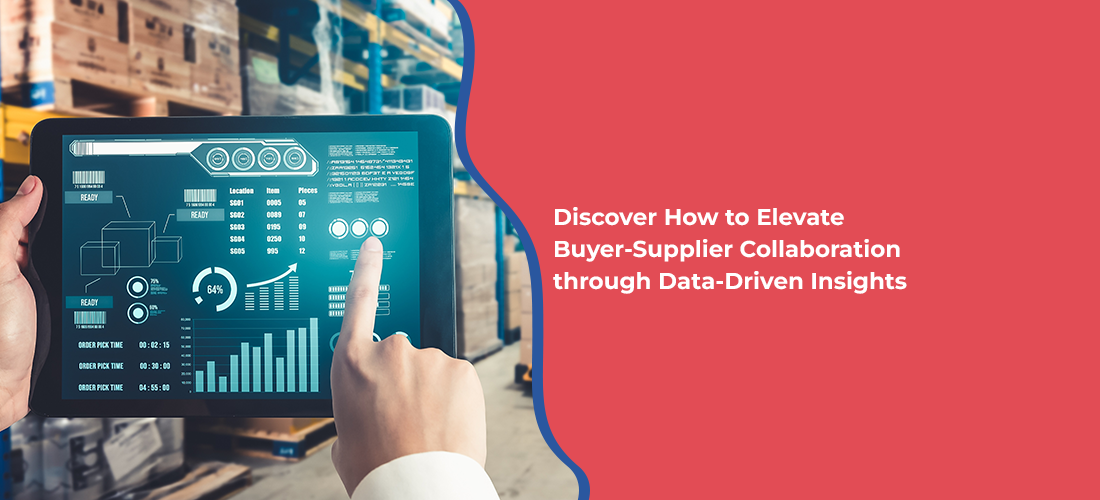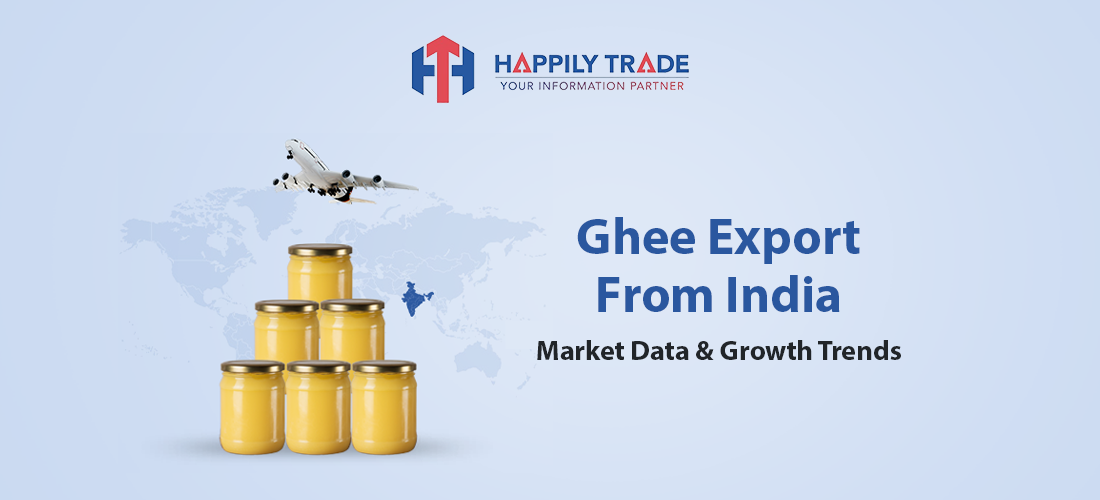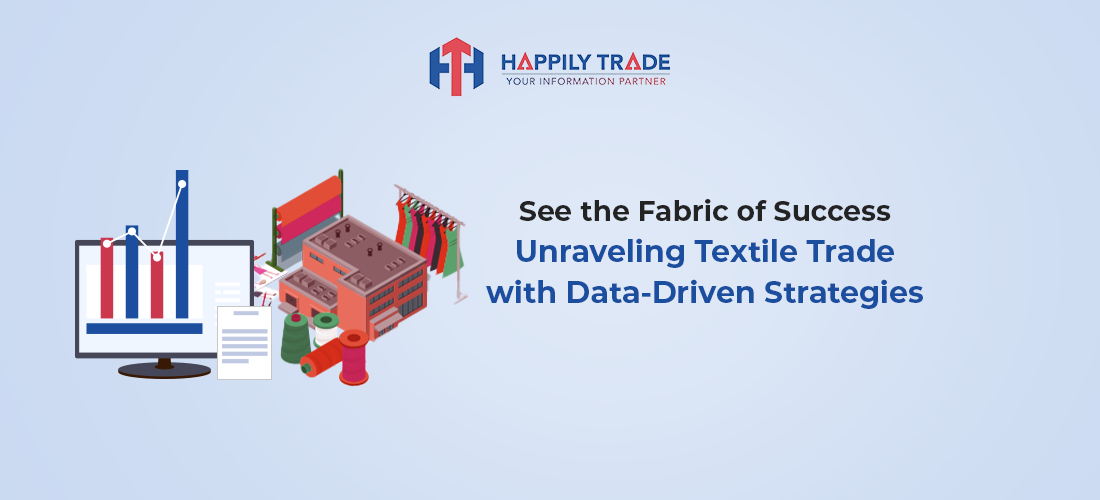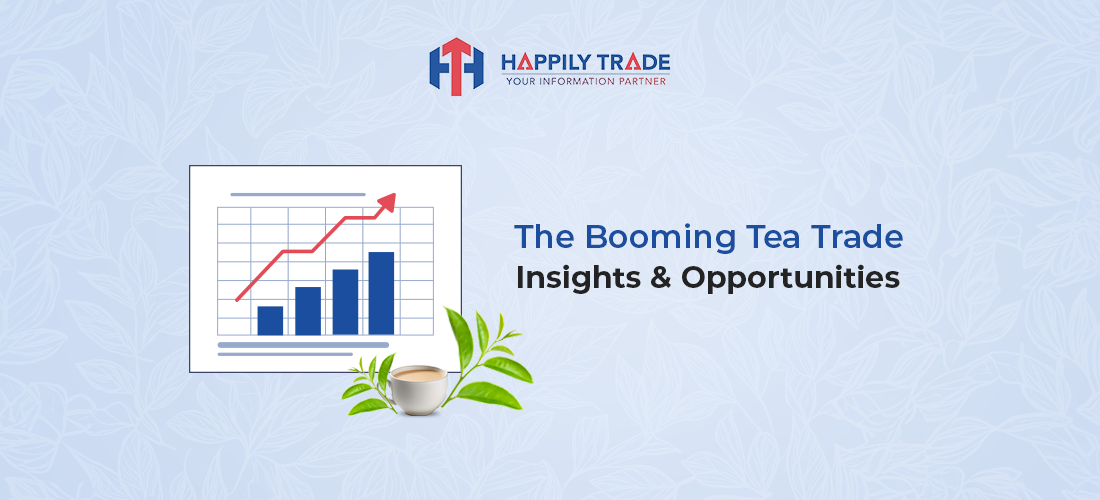The Future of Buyer-Supplier Collaboration: Harnessing Data for Strategic Partnerships
- Log in to post comments
In today's evolving global marketplace, organizations recognize the need to collaborate closely with their suppliers to drive innovation, enhance operational efficiency, and deliver superior customer experiences.
Traditionally, buyer-supplier relationships were characterized by transactional interactions focused solely on price negotiation and delivery terms. However, with the increasing complexity of supply chains and global import-export data availability, buyer-supplier collaboration's future lies in harnessing this data to build strategic partnerships.
The Importance of Buyer-Supplier Collaboration
Effective buyer-supplier collaboration has several benefits for both parties involved. Working together will enable buyers and suppliers to understand each other's capabilities and goals better and overcome challenges. This collaboration fosters trust, promotes transparency, and encourages the exchange of knowledge and expertise. It also allows for better alignment of business strategies, leading to improved product quality, reduced costs, and enhanced innovation.
The Evolution of Collaboration Models
Over the years, collaboration models have evolved from transactional relationships to more strategic partnerships.
Organizations are moving away from a short-term, cost-focused approach and embracing long-term collaborations prioritizing mutual growth and value creation. Such strategic partnerships involve:
- Sharing risks and rewards
- Jointly investing in research and development
- Collaborating on supply chain optimization
Leveraging Data in Buyer-Supplier Collaboration
Global import-export data has become the lifeblood of modern organizations, and leveraging it can significantly enhance buyer-supplier collaboration.
Organizations can gain actionable insights into their supply chains, customer preferences, market trends, and operational efficiency. This data-driven approach enables organizations to make informed decisions, drive innovation, and identify opportunities for improvement.
Data-Driven Decision Making
In the future, buyer-supplier collaboration will rely heavily on data-driven decision-making. Organizations can optimize their procurement processes by analyzing historical and real-time information, identifying cost-saving opportunities, and streamlining supply chain operations.
Data-driven decision-making also allows for better demand forecasting, reducing the risk of stockouts or excess inventory.
Enhancing Supply Chain Efficiency
Data analytics and collaboration can greatly enhance supply chain efficiency. Buyers and suppliers can synchronize their operations more effectively by sharing inventory levels, production capacities, and logistics data. It reduces lead generation times, improves order fulfillment, and enhances overall supply chain performance.
Predictive Analytics for Demand Forecasting
Accurate demand forecasting is crucial for both buyers and suppliers. With advanced analytics and predictive models, organizations can accurately forecast demand, leading to optimized inventory levels, reduced waste, and improved customer satisfaction.
Predictive analytics helps suppliers align their production capacities with anticipated demand, ensuring timely deliveries.
Mitigating Risks through Data Analysis
Supply chain disruptions and risks are inherent in today's global business environment. Organizations can proactively identify potential risks and develop contingency plans by analyzing data and monitoring key performance indicators. It also enables buyers and suppliers to identify and address vulnerabilities promptly and build more resilient supply chains.
Building Trust and Transparency
Transparency and trust are critical elements of successful buyer-supplier collaboration. Organizations can foster trust, improve communication, and align their goals and objectives by sharing data and insights.
Transparent data sharing enables both parties to identify areas for improvement, address issues collaboratively, and drive continuous innovation.
The Role of Technology in Data Collaboration
Technology is pivotal in enabling effective data collaboration between buyers and suppliers. Cloud-based platforms, data analytics tools, and supply chain management systems facilitate seamless data exchange, real-time visibility, and collaborative decision-making.
Emerging technologies such as blockchain offer enhanced security, traceability, and transparency in data sharing and will play a crucial role in days to come.
The Need for Data Governance and Security
To harness data effectively, organizations need to establish robust data governance frameworks. These frameworks ensure data accuracy, integrity, and compliance with relevant regulations.
They also address data security by implementing encryption, access controls, and data anonymization measures. Data governance frameworks provide the foundation for trustworthy and sustainable buyer-supplier collaborations.
Future Trends in Buyer-Supplier Collaboration
Looking ahead, several trends will shape the future of buyer-supplier collaboration. But the future of buyer-supplier collaboration will lie in harnessing data for strategic partnerships.
These include the increased use of artificial intelligence and machine learning for predictive analytics, adopting Internet of Things (IoT) devices for real-time data monitoring, and integrating supply chain data with other business functions such as sales and marketing.
The Challenges Ahead
While data-driven collaboration offers significant benefits, organizations must address challenges and considerations. These include data privacy and security concerns, data quality and reliability, interoperability between different systems, and the need for robust data governance frameworks.
Overcoming these challenges requires proactive planning, effective communication, and adopting standardized data exchange protocols.
Charting a Course to Success with Happily Trade Exim
At Happily Trade Exim, we take pride in delivering hassle-free, on-time information to Exporters, Importers, Traders, CHA, Logistics Companies, and Government Agencies.
Established in 2015, we have become the go-to import-export data provider in India. Our goal is to bridge the gap and provide reliable, meaningful information for trade.
With our unwavering commitment to authenticity, we have amassed a wealth of data from over 80 Foreign Countries. This vast pool of information enables our clients to explore exciting new markets globally, uncover potential consumers, discover new products, and seize business opportunities.
Don't miss out on valuable trade insights. Subscribe to Happily Trade Exim and receive hassle-free, on-time information to fuel your business growth.
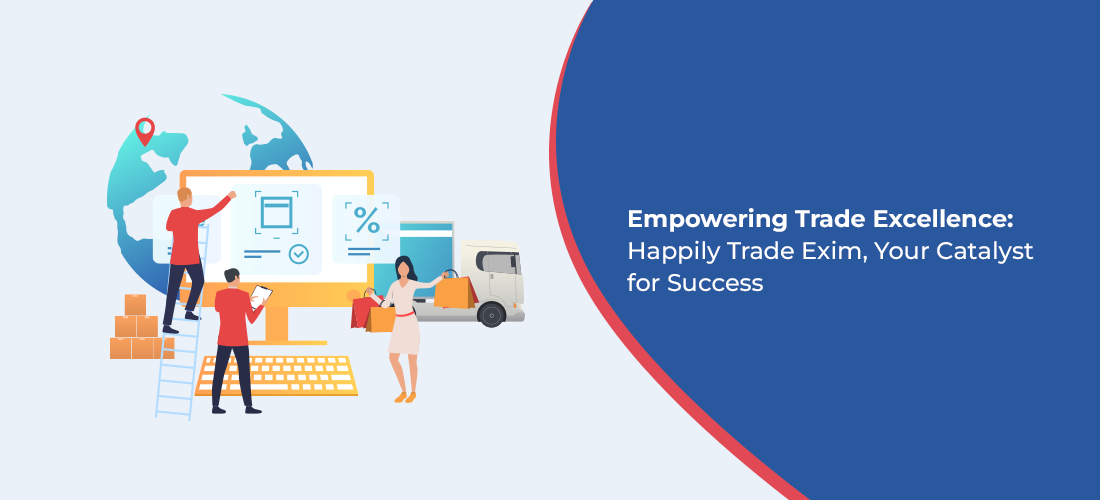
FAQs
Q: How can data analytics improve buyer-supplier collaboration?
Data analytics provides valuable insights into supply chain performance, demand forecasting, and risk mitigation, enabling organizations to optimize their collaboration and drive continuous improvement.
Q: What are the key challenges in data-driven buyer-supplier collaboration?
Key challenges include data privacy and security concerns, data quality and reliability, interoperability between systems, and the need for robust data governance frameworks.
Q: What role does technology play in data collaboration?
Technology enables seamless data exchange, real-time visibility, and collaborative decision-making. Cloud-based platforms, analytics tools, and supply chain management systems are essential for effective data collaboration.
Q: How can buyer-supplier collaboration contribute to sustainable practices?
Buyer-supplier collaboration can drive collaboration around environmental and ethical standards, promoting sustainable and socially responsible practices throughout the supply chain.

